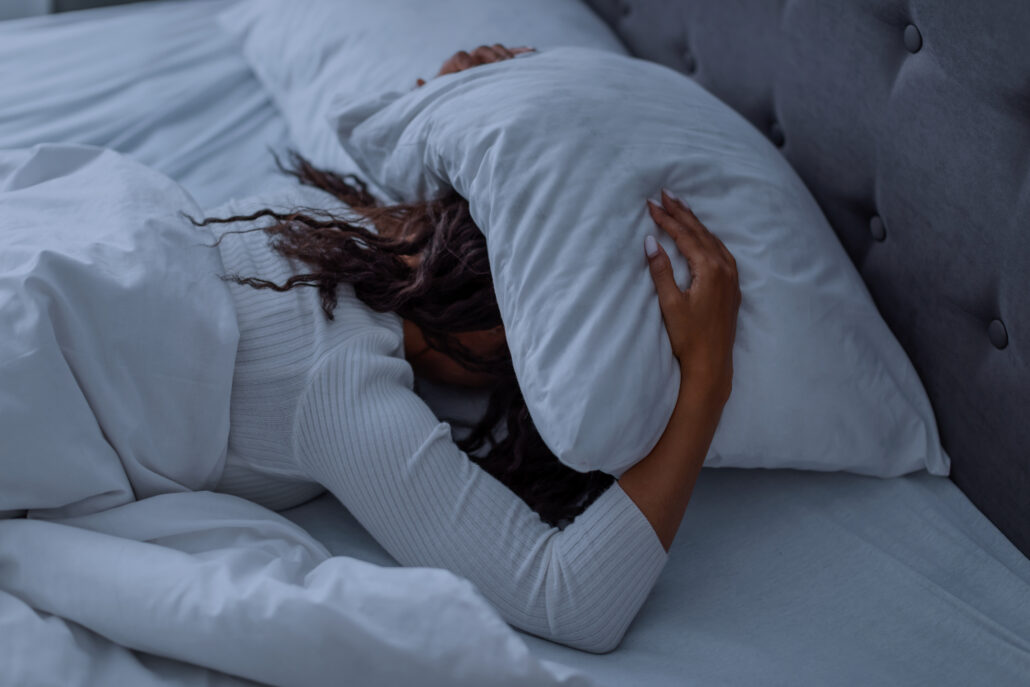
Spiral notebooks. Colored pencils. Highlighters. Check.
New shoes. That must-have jacket. A tricked-out backpack. Check.
Downloaded all the homework apps. Bought a spare tablet charger. Done and done.
In bed by 9 p.m., get 10 hours of uninterrupted sleep, and be wide awake to catch the bus in the morning? Not likely.
Preparing your school-age children for success goes beyond picking up all the necessary supplies and buying them some clothes that actually fit. (Gosh, they grow so fast.) Getting adequate sleep throughout the school year is among the most important things kids need in order to learn.
Establishing healthy sleep habits for your child is something you’ll probably have to work at to get right. But it’s never too early or too late to start. With some tips and advice from certified clinical sleep expert Terry Cralle, MS, RN, we’ll help you tackle this important item on your back-to-school checklist.
Ten Hours of Sleep? Really?
In 2016, the American Academy of Sleep Medicine released sleep guidelines for children and adolescents. The consensus recommendation states that children ages 6-12 regularly need between 9-12 hours of sleep in a 24-hour period for optimal health. Younger children require even more sleep, while teens need slightly less (8-10 hours).
A recent review of 79 published sleep studies shows children in this age group are getting less sleep than the low end of the recommended range – which may come as no surprise to you, based on your own personal experience.
There’s No Minimum Age for Sleep Disorders
“Young children can suffer from the same sleep problems as adults,” says Cralle. “Issues can include insomnia, snoring, sleep apnea, sleepwalking and night terrors. Any of those disruptions can lead to poor sleep quality, even sleep deprivation, and should always be brought to the attention of your child’s healthcare provider.”
In fact, one research study from the National Center for Biotechnology Information found that 37% of students in kindergarten through fourth grade had significant sleep problems in at least one sleep domain.
Beginning in adolescence, a biological shift complicates sleep patterns. Production of melatonin (the hormone that brings on sleep) begins later in the evening in adolescence, delaying the natural drive to fall asleep by as much as two hours. Falling asleep later puts students at odds with early school start times, leading to sleep deprivation – which can negatively impact a teen’s health, well-being and school performance.
Sleep Directly Impacts Learning
There is a close relationship between sleep and cognitive ability. Lack of sleep compromises a child’s ability to learn; sleep-deprived children have a harder time maintaining focus, remembering facts and making decisions – all of which are critical factors in school.
Kids who lack sleep also have trouble controlling their emotions. They act up more frequently and display hyperactivity. These outbursts can negatively impact the teaching environment for that student and the rest of the class.
“Poor sleep also negatively impacts the immune system, which makes kids more susceptible to illness,” adds Cralle. “Even if your child is getting acceptable grades, being absent from school means missing out on key learning opportunities.”
[av_sidebar widget_area=’Quiz Banner’ av_uid=’av-2ad5hk’]
Make Better Sleep Part of the Daily Routine
Bottom line: Youngsters need their parents to make rules and routines regarding bedtime. It’s up to you to be clear and consistent. It may take some patience on your part, but kids ultimately thrive on having structure. Your child will adapt as the nights go by and bedtime will soon go smoothly.
“The bedtime routine or sleep ritual can be fairly short, lasting 20-40 minutes, and serve as a signal to the child that it is bedtime,” said Cralle.
Take these approaches into account as you establish a sleep routine in your home:
- Find the ideal bedtime. Every child is different, but most will have a regular rhythm to their body clocks. “Observe what time of day your child normally begins to slow down and exhibit physical fatigue. Get them to bed before then so they don’t get a second wind,” says Cralle.
- Make bedtime special. Read them a story, give them a warm bath or just spend some quiet time bonding with your child. Keep it peaceful and relaxing, but be firm when it’s time to turn the lights out. Bedtime is a non-negotiable part of the day.
- Give them a role. Letting your child make some of their own bedtime choices will make them feel like it’s truly their routine. Let them choose their pajamas, the book to read or select the stuffed animal to bring to bed.
- Put tech on timeout. Banish the TV and other electronic devices from the bedroom. Reducing screen time in the hours before lights-out may help promote earlier sleep onset. (Learn about more things you should or shouldn’t have in any bedroom.)
- Limit their schedules. Too many extracurricular activities can leave kids feeling exhausted and stressed. Ensure that the activities you plan for your kids allow sufficient time for sleep, and maintain communication with teachers and coaches to prevent getting to a point of overload.
- Evaluate their bed. Kids need a comfortable place to rest if they are going to get any sleep. If your child’s bed has an old, hand-me-down mattress that is more than 7 years old, you should probably replace it. “The need for support in a mattress increases with size and age,” adds Cralle. Also, make sure they haven’t outgrown the size of the bed. Consider a full-sized bed to replace a twin.
- Don’t undermine your hard work. The objective is to make sleep a positive experience. Never send your kids to bed early as a punishment, let them stay up late as a reward or use the bedroom for time-outs.
Count to Three
How do you know all of your hard work and dedication sticking to a healthy sleep routine is making a difference? The University of Michigan suggests that your child is getting enough sleep when:
- They fall asleep within 15-30 minutes of going to bed.
- They wake up easily when needed, without much prodding.
- They remain alert throughout the day.
“Those three signs of getting a good night’s rest apply to adults too,” Cralle reminded us.
Set a good example for your children by paying attention to the quality and quantity of sleep that you’re getting. Sign up for the Better Sleep Council newsletter, The Snoozzze, to get the latest sleep research and tips to help you get better sleep.
Create the perfect back-to-school sleep routine that your kids will enjoy with these #bettersleep tips from @BetterSleepOrg.Sources:
- https://aasm.org/resources/pdf/pediatricsleepdurationconsensus.pdf
- https://www.psychologytoday.com/us/blog/child-sleep-zzzs/201805/how-much-sleep-are-children-getting
- https://www.ncbi.nlm.nih.gov/pubmed/10706346
- http://www.med.umich.edu/yourchild/topics/sleep.htm
- https://www.nytimes.com/2017/05/22/well/family/the-science-of-adolescent-sleep.html
- https://well.blogs.nytimes.com/2016/07/25/helping-our-school-age-children-sleep-better/
- http://pajamaprogram.org/uploads/logos/Cralle%20n%20Brown%20-%20Impact%20of%20Sleep%20Children%20in%20Need.pdf
This blog provides general information about sleep and sleep products. The words and other content provided in this blog, and in any linked materials, are not intended to replace a one-on-one relationship with a qualified heath care professional. This blog should not be construed as medical advice or used to diagnose, treat, prevent or cure any disease or condition. If the reader or any other person has a medical concern, he or she should consult with an appropriately-licensed physician or other health care professional. This blog is not a substitute for professional medical advice, diagnosis or treatment, and should not be relied upon to make decisions about your health or the health of others. Never disregard professional medical advice or delay in seeking it because of something you have read on this blog or elsewhere on bettersleep.org. If you think you may have a medical emergency, immediately call your doctor or dial 911.



